We train assistance dogs to bring support, independence, and companionship to people with disabilities, enhancing their lives every day.
Don't wanna be here? Send us removal request.
Text
Unlocking Potential: The Power of Canine Service Dog Training
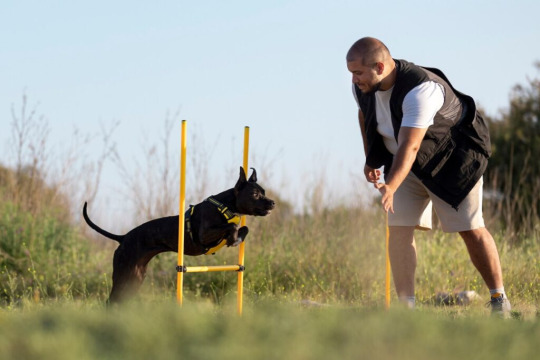
Service dogs are truly life-changing companions. With proper training, these incredible animals can open up new levels of independence, security, and emotional support for individuals with physical, neurological, or psychiatric challenges. At AssistanceDog.Center, expert trainers are dedicated to unlocking the full potential of every dog, creating partnerships that transform lives.
Why Service Dog Training Matters
Service dogs aren’t just pets—they’re trained professionals. Their job is to assist individuals with specific needs, whether it's guiding someone who is visually impaired, alerting a person with epilepsy to oncoming seizures, or providing comfort during anxiety attacks. However, these complex tasks require much more than basic obedience. They demand specialized training, patience, and a deep understanding of both the dog’s capabilities and the handler’s needs.
That’s where professional trainers come in, and where AssistanceDog.Center stands out.
Expert Trainers Making a Difference
The trainers at AssistanceDog.Center bring years of experience, knowledge, and passion to every training session. Every dog goes through a customized program that takes into account the individual needs or disabilities of the future handler. Whether starting with a young puppy or working with an adult dog, the trainers focus on developing core skills like:
Task-specific training: Depending on the disability, dogs may learn mobility assistance, retrieval, balance support, medical alert responses, or psychiatric support tasks.
Dependability in behavior: Even in stressful or distracting situations, service dogs need to maintain composure, concentration, and obedience.
Public access training: Dogs are prepared to accompany their handlers everywhere, from grocery stores to airports, while maintaining perfect manners.
A Customized Journey for Every Team
At AssistanceDog.Center, training isn’t one-size-fits-all. Each dog-handler team receives individualized attention. Trainers work closely with the handler to ensure the dog not only performs tasks but also builds a strong, trusting bond with their person.
This partnership approach creates confidence—for both dog and handler—that allows them to navigate the world together safely and comfortably.

Why Choose AssistanceDog.Center?
Service dog training expertise: decades of combined experience.
Compassionate Approach: Being aware of clients' physical and emotional needs.
Personalized Programs: Customized training plans for each dog-handler pair.
Ongoing Support: Continued guidance after certification to ensure long-term success.
Transforming Lives, One Dog at a Time
It is impossible to exaggerate the value of a well-trained service dog. They provide independence, security, and hope to individuals facing daily challenges. With the right training, these remarkable animals become not only helpers but loyal companions for life.
If you or someone you know could benefit from a service dog, visit AssistanceDog.Center’s trainers page to learn more about how their expert team can help you begin the journey.
0 notes
Text
Unlocking Potential: Expert Canine Service Dog Training with AssistanceDog.Center

When it comes to service dog training, it's not just about obedience—it's about unlocking a dog's full potential to transform a human life. At AssistanceDog.Center, the focus is on providing expert, compassionate, and highly specialized training for dogs that will go on to become life-changing companions for individuals with disabilities, PTSD, autism, and other conditions.
Whether you're a dog trainer looking to expand your skills or someone in need of a highly trained service animal, the trainer directory at AssistanceDog.Center is your ultimate starting point.
Why Service Dog Training Is Different
Training a service dog goes far beyond teaching “sit” and “stay.” These dogs need to master advanced tasks such as opening doors, alerting to medical conditions, retrieving objects, or providing physical and emotional support. The stakes are high, and that’s why training must be conducted by professionals who truly understand the responsibility.
At AssistanceDog.Center, every trainer listed is experienced in preparing dogs to meet real-world challenges. You’ll find trainers specializing in:
Mobility Assistance
Seizure and Diabetic Alerts
PTSD and Psychiatric Service Dogs
Autism Support Dogs
Hearing and Visual Assistance
Each of these categories requires not just technical knowledge, but also empathy, patience, and a deep commitment to improving lives.
A Trusted Directory of Service Dog Trainers
One of the standout features of the website is its dedicated service dog trainer directory.
This curated list allows you to connect with trusted professionals who specialize in different types of service dog training. You can filter by training type, location, and experience level, making it easy to find a trainer that suits your needs.

Whether you're seeking local training, virtual sessions, or even a custom training program tailored to a specific condition, AssistanceDog.Center helps you find the right match.
For Trainers: Join a Growing Network
If you're a professional trainer, the platform also offers an opportunity to join a supportive community and showcase your expertise. You can list your services, gain visibility, and collaborate with others in the field who are passionate about ethical and effective service dog training.
This isn’t just about business—it’s about being part of a mission to change lives, one dog at a time.
Empowering Lives, One Dog at a Time
The bond between a person and their service dog is life-changing—and it all begins with the right canine service dog training . AssistanceDog.Center is committed to ensuring that both humans and dogs are set up for success through expert guidance and a network of trusted trainers.
0 notes
Text
Transform Your Pup: The Ultimate Guide to Professional Dog Training Services
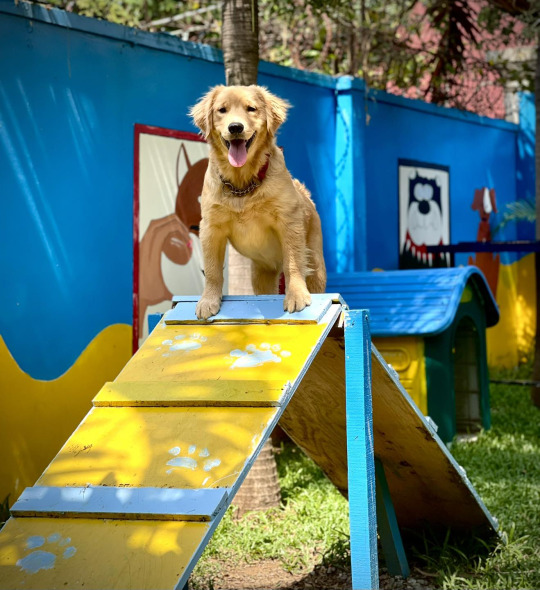
Training your dog is more than just teaching them to sit or stay; it's about building a lifelong bond based on trust, communication, and mutual respect. Expert dog training services can have a big impact, regardless of whether you're a first-time dog owner or trying to improve your dog's disposition. This comprehensive guide will walk you through the essentials of dog training, highlight the benefits of professional services, and introduce you to specialized programs like those offered by CMAC.
Understanding the Importance of Dog Training
Training is essential to a happy and well-behaved dog. It ensures safety, enhances the human-animal bond, and allows your dog to integrate seamlessly into various environments. Anxiety can be decreased, behavioral problems can be avoided, and mental stimulation can be obtained with proper training.
Types of Dog Training Services
1. Basic Obedience Training
Important commands like sit, stay, come, and heel are covered in this foundational training. It's ideal for puppies and newly adopted dogs to establish good behavior patterns.
2. Advanced Obedience Training
For dogs that have mastered basic commands, advanced training focuses on off-leash control, complex commands, and refining responses in high-distraction environments.
3. Behavioral Modification
This deals with particular problems like excessive barking, separation anxiety, or aggression. Professional trainers develop customized plans to modify undesirable behaviors.
4. Specialized Training
Specialized training prepares dogs for specific roles, such as service dogs, therapy dogs, or search and rescue. These programs are intensive and tailored to the dog's future responsibilities.
Benefits of Professional Dog Training Services
Expertise: Professional trainers have the experience to handle various breeds and behavioral issues effectively.
Program Customization: Training regimens are made to fit your lifestyle and your dog's particular requirements.
Consistency: Regular sessions ensure consistent reinforcement of desired behaviors.
Support: Trainers provide guidance and support, helping you understand and communicate better with your dog.
Spotlight on CMAC's Coaching Program
CMAC offers a comprehensive coaching program designed to empower service dog organizations worldwide. Their services include:
Program Development: Assisting in establishing robust training programs with well-defined curricula and standardized procedures.
Medical Alert Specialization: Training dogs to recognize and respond to medical conditions like diabetes, seizures, and psychiatric issues.
Positive Reinforcement Techniques: Emphasizing ethical and dog-friendly training methods.
Regulatory Guidance: Navigating the legal landscape to ensure alignment with industry standards.
CMAC's experienced trainers use proven techniques to ensure dogs provide invaluable support to individuals in need.
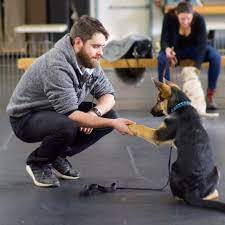
Choosing the Right Training Service
Take into account the following when choosing a training service:
Credentials: Verify the trainer's certification, breed-specific knowledge, and experience.
Techniques of Training: Choose instructors who employ positive reinforcement.
Reviews and References: Seek feedback from previous clients to gauge the trainer's effectiveness.
Facility: Visit the training facility to assess cleanliness, safety, and the overall environment.
Tips for Successful Dog Training
Consistency: Maintain consistent commands and routines.
Patience: Recognize that training requires perseverance and time.
Positive reinforcement: is the process of rewarding desired behaviors through play, praise, or treats.
Short Sessions: To keep your dog's attention, keep training sessions interesting and brief.
Socialization: Expose your dog to various environments, people, and other animals to build confidence.
Conclusion
A positive relationship with your dog can be achieved by spending money on professional dog training services. Programs like CMAC's coaching offer specialized training that can transform your pup into a well-behaved and supportive partner. Remember, training is an ongoing process that requires commitment, patience, and love.
For more information on CMAC's coaching program, visit their website: https://www.assistancedog.center/our-coaching-program
0 notes
Text
Training to Become a Certified Medical Alert Service Dog Trainer with CMAC: Empowering Trainers
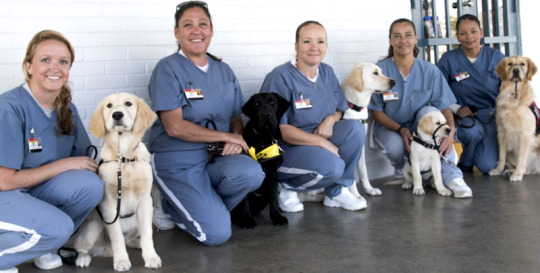
Becoming a professional service dog trainer is more than just teaching a dog to sit or stay. It’s about transforming lives—both human and canine. For those passionate about training service dogs that assist individuals with serious medical conditions, the Center for the Study of Medical Assistance Canines (CMAC) offers one of the most comprehensive and science-based certification programs in the industry.
In this post, we’ll explore what it means to become a Certified Medical Alert Service Dog Trainer with CMAC, what the journey looks like, and why this path is both professionally rewarding and personally fulfilling.
Why Specialize in Medical Alert Service Dogs?
Service for medical alerts Dogs are taught to recognize and react to a range of medical conditions, such as:
Seizures
Diabetic emergencies
Cardiac issues
Psychiatric episodes like anxiety attacks or PTSD
These dogs can provide life-saving alerts and help their handlers regain independence and confidence in daily life. However, training a dog to perform this type of work requires more than basic obedience—it demands an in-depth understanding of canine behavior, medical conditions, scent detection, and customized response protocols.
That’s where CMAC comes in.
What Is CMAC?
The Center for the Study of Medical Assistance Canines is a globally recognized educational and research institution focused on advancing the standards for medical alert service dog training. With an emphasis on science-based, ethical, and force-free methodologies, CMAC provides trainers with the tools and knowledge to develop dogs that meet rigorous medical and behavioral standards.
Who Is the Program For?
CMAC’s certification program is ideal for:
Dog trainers with experience who want to focus on medical alert service dogs
Veterinarians or vet techs seeking to expand into the service dog field
Therapists and healthcare professionals who want to incorporate assistance dogs into their practice
Individuals with a strong background in canine behavior and learning theory
This is not a beginner program. It’s tailored for those who already have experience in dog training or animal behavior and are looking to elevate their career to the next level.
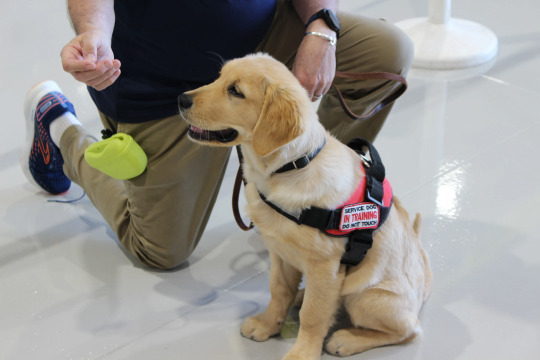
The Certification Journey with CMAC
Let’s break down the core elements of the CMAC program:
1. Evidence-Based Curriculum
The coursework at CMAC is rooted in behavioral science and medical research. You’ll study:
The function of scent detection in warning of blood chemistry changes
Operant and classical conditioning techniques
Procedures for teaching canines to identify and react to medical signs
Ethical and legal issues when assigning service dogs
2. Hands-On Training
Participants engage in practical sessions that simulate real-life scenarios. This includes:
Training dogs in public access skills
Building reliable medical alerts and response behaviors
Working with individuals who have medical conditions to customize training plans
3. Mentorship and Support
CMAC offers mentorship from top professionals in the field. Whether it’s guidance on a training case or help with client communication, you’ll be supported every step of the way.
4. Assessment and Certification
Trainers must demonstrate:
Mastery of theory through exams
The ability to train and place service dogs practically
Understanding of individual client needs and adaptation of training accordingly
Once certified, you’ll be officially recognized as a CMAC Certified Medical Alert Service Dog Trainer, a title respected worldwide.
What Sets CMAC Apart?
There are many service dog training programs out there—but CMAC offers something unique:
Focus on Medical Detection: CMAC doesn’t just train generic service dog tasks. They are experts at identifying and reacting to highly specific, frequently fatal medical changes in dogs.
Ethical Standards: CMAC is a strong advocate of force-free training. Their program is grounded in kindness, empathy, and the well-being of the dog and client.
Global Recognition: Trainers certified by CMAC are part of an elite group recognized for their depth of knowledge and professionalism in the service dog community.
Career Opportunities After Certification
As a certified trainer from CMAC, doors open to a wide range of opportunities:
Work on your own as a private dog trainer.
Collaborate with medical professionals or hospitals
Start your own medical alert dog training organization
Consult on research projects related to medical scent detection
The demand for trained service dog professionals continues to rise, especially as more people discover how assistance animals can support complex medical needs.
Success Stories
Graduates of the CMAC program have gone on to change lives across the globe. One trainer shared:
"I had years of experience as a dog trainer, but CMAC taught me how to apply my skills in ways I never thought possible. Watching a dog alert their handler to an oncoming seizure for the first time—it’s magical. I’m not just training dogs, I’m helping save lives.”

How to Get Started
Ready to take the next step?
Here’s how you can begin your journey with CMAC:
Visit the Official Website: https://www.assistancedog.center/
Review Course Requirements: Make sure you meet the prerequisites in training experience and background.
Apply Online: Fill out the application form, including your credentials and training history.
Get Ready to Learn: Once accepted, you’ll gain access to materials, mentors, and a network of passionate professionals.
Final Thoughts: Empowering Lives—One Dog at a Time
Training a medical alert service dog isn’t just a career. It’s a calling. And with CMAC’s expert certification program, you’ll be equipped to make a real difference.
If you’re ready to empower lives, elevate your career, and become a leader in service dog training, then CMAC is the place to start.
🌐 Start your journey today at assistancedog.center
0 notes
Text
How to Start Service Dog Training: Expert Guidance from AssistanceDog.Center
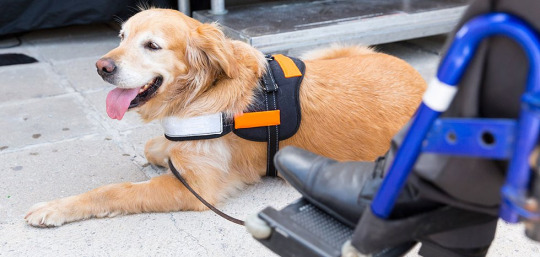
The process of training a service dog can change the handler's and the dog's lives. Whether you need help with mobility, emotional support, medical alerts, or psychiatric assistance, having a well-trained service dog can bring confidence, independence, and comfort to your daily life. But where do you begin? That’s where AssistanceDog.Center comes in—offering expert guidance, certified trainers, and personalized programs to help you every step of the way.
Understanding the Role of a Service Dog
A service dog is not just a pet—it’s a working animal trained to perform specific tasks that mitigate a person’s disability. These tasks can include guiding a visually impaired person, alerting to seizures, retrieving dropped items, or even interrupting self-harming behavior. Because of the complexity and responsibility of the job, service dog training goes far beyond basic obedience.
Is Your Dog a Good Candidate?
Not all dogs are suited for service work. A successful service dog must be intelligent, calm, trainable, and able to focus in high-distraction environments. Puppies and adult dogs can both be trained, but it’s important to assess temperament, health, and personality early in the process. If you’re unsure whether your dog has service dog potential, AssistanceDog.Center offers evaluations to help you make the best decision.
Professional vs. Owner Training
There are two main paths: you can train the dog yourself (owner-trained) or work with a professional trainer. While owner-training gives you full control, it requires a significant time commitment and knowledge of dog behavior, training techniques, and disability laws.
Professional trainers, like those listed on AssistanceDog.Center, can help structure the program, offer hands-on coaching, and guide your dog through public access training and task-specific skills. Many trainers offer flexible formats, including in-person, group, and online sessions.
Steps to Start Service Dog Training
Here’s a general roadmap to get started:
Research the Laws Understand the ADA (Americans with Disabilities Act) requirements and your rights as a service dog handler.
Choose the Right Dog or Puppy If you don’t already have a dog, work with a breeder or organization that specializes in service dog candidates.
Connect with a Qualified Trainer Use AssistanceDog.Center’s trainer directory to find professionals who match your needs and location.
Focus on Basic Obedience First Solid obedience is the foundation for more advanced tasks. Your dog should walk calmly on a leash, follow commands, and remain focused in public.
Move into Public Access and Task Training Service dogs must behave appropriately in all public settings and perform specific, disability-related tasks.
Document Progress and Practice Consistently Keeping a training log and practicing daily will ensure steady improvement and help when testing for certification.
Why Choose AssistanceDog.Center?
AssistanceDog.Center is more than just a directory of trainers; it's a community devoted to moral, efficient, and empowering service dog training. Their trainer network includes certified professionals who understand both the practical and emotional challenges of living with a disability.
0 notes
Text
Top Assistance Dog Trainers: Expert Guidance for Life-Changing Partnerships

Assistance dogs are more than just pets—they are trained companions that change lives. From helping people with physical disabilities to supporting those with mental health conditions, assistance dogs provide safety, independence, and emotional comfort. But behind every well-trained assistance dog is a skilled trainer who understands both the dog’s abilities and the handler’s needs.
At the Assistance Dog Center, a trusted online resource, you can find professional trainers who specialize in different types of assistance dog training. Whether you're looking for a guide dog, service dog, psychiatric support dog, or autism assistance dog, choosing the right trainer is the first step to a successful partnership.
Why Expert Trainers Matter
Assistance dog training requires patience, experience, and time.It’s not just about teaching commands—it's about creating a strong bond between the dog and the person they will help. Top trainers focus on:
Behavior shaping through positive reinforcement
Understanding disability-specific needs
Customizing training plans for individual lifestyles
Long-term support for both the dog and the handler
Professional trainers also ensure that the dog is well-socialized and able to work in public spaces without distractions. This is crucial for those who depend on their dogs for mobility, medical alerts, or emotional grounding.
What to Look for in an Assistance Dog Trainer
When searching for a trainer, consider these key points:
Certification or experience with assistance or service dogs
References or testimonials from past clients
Specialization in the type of assistance dog you need
Ongoing training support even after the dog is placed
Many top trainers offer in-person and virtual sessions, so you don’t have to be in the same location to start your journey.

A Life-Changing Bond
For individuals living with disabilities, an assistance dog offers more than support—it offers freedom. Imagine a child with autism who feels calmer with a trained companion by their side, or a veteran with PTSD finding comfort and safety through their dog’s presence. These transformations wouldn’t be possible without the expertise and care of dedicated trainers.
Find a Trusted Trainer Today
The Assistance Dog Center connects people with trusted, skilled trainers across different regions and specialties. Their goal is to make the process of finding and working with an assistance dog easier, safer, and more supportive for everyone involved.
If you or someone you love could benefit from an assistance dog, take the first step today. Visit https://www.assistancedog.center/trainers to find a trainer who can help build a partnership that will change a life—for good.
0 notes
Text
Empowering Partnerships: Inside the Assistance Dog Center’s Life-Changing Coaching Program

When we think of assistance dogs, we often imagine their loyalty, their incredible skills, and the independence they help bring into people’s lives. But behind every well-trained assistance dog is a powerful journey — one that starts with expert guidance, dedication, and deep connection. This is where the Assistance Dog Center’s Coaching Program truly shines.
Building the Foundation for Success
At the heart of the Assistance Dog Center’s Coaching Program is a commitment to building strong partnerships between dogs and their handlers. It’s not just about teaching commands — it’s about creating lasting bonds based on trust, understanding, and communication.
Participants in the program receive personalized, hands-on coaching designed to meet their unique needs. Whether someone is working with a young puppy or an adult dog in training, the focus is always on building skills step-by-step, ensuring both dog and handler grow together with confidence.
Expert Guidance Every Step of the Way
Having access to knowledgeable, enthusiastic trainers is one of this program's most potent features. These professionals don't just teach; they mentor, empower, and inspire.
Through one-on-one sessions, group workshops, and ongoing support, handlers learn how to:
Recognize and harness their dog’s strengths
Develop effective communication techniques
Reinforce positive behaviors consistently
Navigate real-world challenges with poise
Every lesson is tailored to fit real-life scenarios, helping teams prepare for the kinds of challenges they’ll face beyond the training ground.
Transforming Lives Through Connection
The magic of the Assistance Dog Center’s Coaching Program goes beyond practical training. It’s about transforming lives. Participants often share that the program helped them not only achieve greater independence but also rediscover joy, confidence, and purpose through their bond with their dog.
For many, it’s the first step toward a life filled with new opportunities — whether that’s traveling alone, attending school, re-entering the workforce, or simply navigating everyday life with greater ease.
A Journey Worth Taking
Training an assistance dog is a journey — and with the right support, it can be one of the most rewarding experiences imaginable. The Assistance Dog Center’s Coaching Program stands as a beacon of hope, skill, and empowerment for anyone ready to embark on that incredible path.
If you're considering partnering with an assistance dog, or if you’re ready to take your training to the next level, the Coaching Program offers the tools, expertise, and community to help you succeed.
0 notes
Text
Top-Rated Assistance Dog Trainers Near You: Expert Guidance from AssistanceDog.Center

Finding the right assistance dog trainer can be life-changing. Whether you're seeking support for a physical disability, PTSD, autism, or another condition, a well-trained assistance dog can provide not only practical help but emotional support, independence, and companionship. That’s where AssistanceDog.Center comes in—a trusted hub connecting people with the top-rated assistance dog trainers near them.
Why Professional Training Matters
Unlike regular dog obedience classes, assistance dog training involves highly specialized techniques. These canines have been trained to carry out particular duties, like opening doors, locating dropped objects, detecting noises, or even identifying their handler's distress.Proper training ensures that your dog is not only obedient but also capable of handling complex, real-life situations with reliability.
Trainers listed on AssistanceDog.Center understand the nuances of disability-specific training. They work closely with clients to tailor programs to their exact needs, ensuring both safety and effectiveness.
How AssistanceDog.Center Helps You Find the Right Trainer
AssistanceDog.Center simplifies the search for qualified trainers. On their website, you’ll find an easy-to-navigate directory of certified professionals who specialize in a variety of assistance dog roles—from mobility assistance and psychiatric support to medical alert and autism support dogs.
Here’s what makes their platform stand out:
Verified Trainer Listings: Every trainer on the site is thoroughly vetted for credentials and experience.
Filter by Location: Whether you're in a big city or a rural town, you can find trainers close to home.
Read Real Reviews: Get peace of mind by reading feedback from others who’ve worked with each trainer.
Contact with Ease: Reach out directly from the site to schedule consultations or learn more.
What to Expect from Training
The process usually starts with a consultation to evaluate the dog’s temperament and the handler’s needs. Training can take months or even years, depending on the tasks involved and whether you're starting with a puppy or an older dog. Many trainers offer both in-person and remote sessions, allowing for flexibility and ongoing support.
Training often includes:
Task-specific learning (e.g., seizure response, guiding a blind handler)
Obedience and public access training
Handler education and teamwork building
Regular progress evaluations

Empowerment Through Canine Companionship
An assistance dog is more than a helper—they're a lifeline. With proper training, these dogs can dramatically enhance your quality of life, offering not only practical help but emotional security. And with AssistanceDog.Center, you’re never alone in the journey.
So if you’re ready to take the next step, explore the expert guidance available on AssistanceDog.Center and connect with a trainer who understands your unique needs.
0 notes
Text
Jennifer Cattet & Associates LLC | CMAC Dog Training Classes for Service Dogs
we offer dog training classes to help prepare dogs for service work. Our classes teach essential skills and tasks for dogs to assist people with disabilities. Whether you’re starting with a puppy or training an adult dog, we provide clear, effective training to build a strong partnership between you and your service dog. Our goal is to help you gain confidence and independence with a well-trained service dog by your side.

0 notes
Text
Transforming Lives: Expert Service Dog Training at AssistanceDog

At AssistanceDog Center, service dog training isn't just a program—it's a life-changing journey for both the dog and the person they’re trained to assist. Whether you're living with physical disabilities, neurological conditions, or emotional challenges, the right service dog can make all the difference. And that's exactly what AssistanceDog is passionate about: empowering people through expertly trained canine companions.
🐾 What Makes AssistanceDog Different?
Located in the heart of the EU and led by Renate Buchenauer, AssistanceDog Center is one of the few ADI-accredited service dog training centers in Europe. With over two decades of experience, the team specializes in providing customized training for dogs that support people with:
Mobility impairments
Autism spectrum disorder
PTSD and other psychiatric conditions
Medical alert needs
Emotional and cognitive disabilities
Every dog is trained with compassion, consistency, and a strong foundation in positive reinforcement methods.
👩🦽 Training Tailored to Real Lives
At AssistanceDog, the process begins with getting to know the individual’s unique lifestyle and challenges. The dogs aren’t just trained to follow commands—they're trained to understand their partner’s specific needs. This includes tasks like:
Retrieving items
Opening/closing doors
Providing stability and balance support
Alerting to medical events
Interrupting self-harming behaviors
Offering deep pressure therapy
This bespoke approach ensures seamless integration between handler and dog, promoting independence, confidence, and dignity.

🌟 Real Results, Real Stories
The impact of these service dogs is nothing short of incredible. Clients often describe the experience as "regaining their freedom." Many go from relying heavily on human caregivers to confidently navigating their world with their loyal canine partner by their side.
🐶 Start Your Journey Today
If you or a loved one could benefit from a service dog, AssistanceDog Center is here to help. Their team will guide you through the assessment, matching, and training process step by step.
👉 Visit their website to learn more and apply: https://www.assistancedog.center
0 notes
Text
Jennifer Cattet & Associates LLC | CMAC Dog Training for Service Dogs
Jennifer Cattet & Associates LLC, doing business as CMAC, offers expert dog training services specializing in service dog training. Our mission is to provide tailored, professional training to help individuals with disabilities achieve greater independence. Through personalized programs, we train dogs to perform critical tasks, ensuring reliable assistance and emotional support for their handlers. With years of experience and a compassionate approach, CMAC is dedicated to building strong, trusting partnerships between handlers and their service dogs for life-changing results.
0 notes
Text
How Can an Assistance Dog Improve Your Daily Life?

Assistance dogs are more than just pets; they are highly trained companions that provide invaluable support to individuals with disabilities, medical conditions, or special needs. From guiding the visually impaired to offering emotional support, these incredible dogs enhance their owners' independence, confidence, and overall well-being. Here’s how an assistance dog can improve your daily life:
1. Increased Independence and Mobility
For individuals with physical disabilities, mobility assistance dogs can perform essential tasks such as opening doors, retrieving dropped items, and even pressing elevator buttons. This allows their owners to navigate daily life more independently, reducing reliance on caregivers or family members.
2. Emotional and Psychological Support
Assistance dogs offer emotional stability to people experiencing anxiety, PTSD, or depression. Their calming presence can help reduce stress, improve mood, and even prevent panic attacks. For individuals with PTSD, these dogs are trained to recognize distress signals and provide comforting interventions.
3. Enhanced Safety and Security
Medical alert dogs can detect changes in their owner's health before a crisis occurs. For example, diabetic alert dogs can sense blood sugar fluctuations, while seizure-alert dogs can warn their owners before an episode happens. These life-saving abilities provide peace of mind to both the individual and their loved ones.
4. Support for the Visually and Hearing Impaired
Guide dogs help visually impaired individuals safely navigate their surroundings, avoiding obstacles and crossing streets. Similarly, hearing dogs alert their owners to important sounds, such as doorbells, alarms, or approaching people, ensuring they stay aware of their environment.
5. Assistance for Autism and Sensory Processing Disorders
Autism assistance dogs provide a calming influence for individuals with autism, helping to manage sensory overload and reduce anxiety in stressful situations. They can also prevent wandering and help establish daily routines, improving overall quality of life.
6. Encouraging Social Interaction
Having an assistance dog often fosters social connections. These dogs naturally draw positive attention, making it easier for individuals to engage in conversations and form relationships. This is especially beneficial for those who experience social anxiety or isolation.
7. Promoting Physical Activity
Owning an assistance dog encourages regular physical activity. Whether it’s taking them for a walk or engaging in playtime, these activities promote better physical health, reduce stress, and increase overall well-being.

Final Thoughts
Assistance dogs are more than just companions; they are life-changing partners that empower individuals to live fuller, more independent lives. Whether providing physical support, emotional reassurance, or medical alerts, these incredible animals make a world of difference every day. If you or someone you know could benefit from an service dog training, exploring the options available could be a life-changing decision.
0 notes
Text
Is an Assistance Dog Right for You? Everything You Need to Know
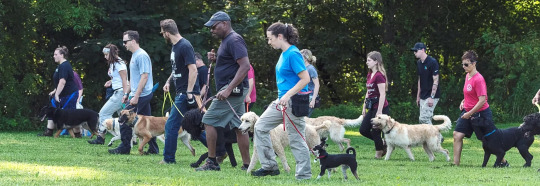
Assistance dogs play a crucial role in the lives of individuals with disabilities, offering support, independence, and companionship. But is an assistance dog the right choice for you? In this guide, we’ll explore everything you need to know before making this important decision.
What is an Assistance Dog?
An assistance dog is a specially trained canine that helps individuals with disabilities perform daily tasks. These dogs provide physical, emotional, and psychological support, allowing their handlers to navigate life with greater ease and confidence.
Types of Assistance Dogs
There are different types of assistance dogs, each trained for specific needs:
Guide Dogs – Help individuals who are visually impaired or blind.
Deaf or hard – ofhearing people can be alerted to important sounds by hearing dogs.
Mobility Assistance Dogs – Aid those with physical disabilities, such as wheelchair users.
Medical Alert Dogs – Detect medical conditions like seizures, low blood sugar, or allergic reactions.
Psychiatric Service Dogs – Support individuals with PTSD, anxiety, or other mental health conditions.
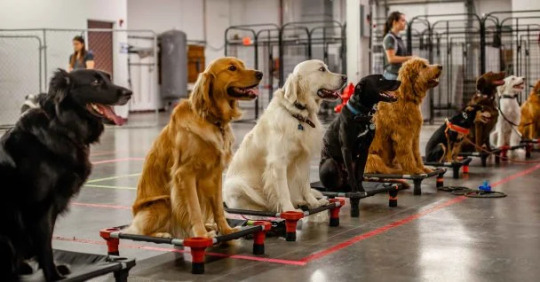
Who Can Benefit from an Assistance Dog?
You may benefit from an assistance dog if you:
✅ Have a physical disability that limits mobility. ✅ Experience sensory impairments such as blindness or deafness. ✅ Require medical alerts for conditions like epilepsy or diabetes. ✅ Struggle with PTSD, anxiety, or other mental health disorders. ✅ Need support for daily tasks, such as opening doors or retrieving objects.
If you recognize yourself in any of these situations, an assistance dog could significantly improve your quality of life.
How to Get an Assistance Dog
The process of obtaining an assistance dog varies depending on the organization and country, but typically involves:
Application Process – Fill out an application with a certified assistance dog organization.
Assessment – Experts will evaluate your needs to match you with the right dog.
Training Program – You may need to attend training to learn how to work with your assistance dog.
Certification & Legal Rights – Assistance dogs are protected under disability laws, ensuring access to public spaces.
Things to Consider Before Getting an Assistance Dog
Before making a decision, consider these factors:
🐾 Time Commitment – Training and bonding with an assistance dog requires time and dedication. 🐾 Financial Responsibility – Although some organizations provide assistance dogs for free, others may charge fees. 🐾 Care & Maintenance – Your assistance dog will need proper nutrition, grooming, and veterinary care. 🐾 Living Arrangements – Ensure your home and lifestyle are suitable for a dog.
Final Thoughts
An assistance dog can be a life-changing companion, providing independence, safety, and emotional support. However, it’s essential to assess your needs, lifestyle, and commitment before making the decision. If you believe an dog training school is right for you, start by reaching out to a trusted assistance dog organization for guidance.
0 notes
Text
How to Choose the Best Assistance Dog Trainer for Your Needs?
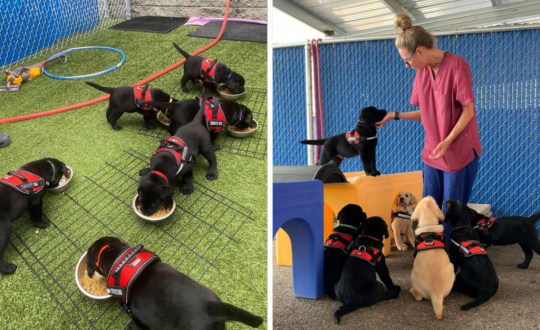
Getting an assistance dog is a life-changing decision, but finding the right trainer is just as important as choosing the dog itself. A well-trained assistance dog can offer support, independence, and companionship, but only if they receive proper guidance from an experienced trainer. So, how do you find the best assistance dog trainer for your needs? Let’s dive in!
1. Understand Your Needs
Before searching for a trainer, identify what kind of assistance you need. Different trainers specialize in various types of assistance dogs, such as:
Guide dogs for visually impaired individuals
Dogs that can hear for the hard of hearing or deaf
Service dogs for physical disabilities
Therapy dogs for emotional support
Medical alert dogs for diseases such as seizures or diabetes
Knowing your specific requirements will help narrow down trainers who specialize in the right area.
2. Look for Certified and Experienced Trainers
Not all dog trainers are qualified to train assistance dogs. Look for trainers who:
Have certifications from recognized organizations (e.g., ADI – Assistance Dogs International)
Have experience training assistance dogs, not just pets
Instead of using punishment-based strategies, use techniques that focus on positive reinforcement.
Have a proven track record with successful training programs
3. Check Their Training Methods
Every trainer has their own approach. The best trainers use:
✅ Reward-based training (treats, praise, toys) ✅ Customized training plans based on your needs ✅ Gradual exposure and real-life training situations ❌ Avoid trainers who use harsh correction methods, as they can cause stress and behavioral issues.
4. Ask for Reviews and Testimonials
A great way to evaluate a trainer is by checking reviews from past clients. Look for:
Testimonials on their website
Social media reviews and ratings
Case studies of successful training stories
Recommendations from disability support groups
If possible, speak directly with other assistance dog owners to get firsthand feedback.
5. Consider the Cost and Location
Training an assistance dog is a significant investment. Costs vary based on:
The trainer’s experience
The duration of the program
Whether it’s private or group training
Some organizations offer financial aid or grants, so check for funding options if needed. Think about the trainer's location as well. Do they provide online or in-person training?
6. Observe a Training Session
Before committing, ask to watch a training session. This allows you to:
Watch how the trainer engages with the canines.
Assess whether they use humane and effective methods
Check to see whether their style fits your requirements.
If the trainer refuses to let you observe, consider it a red flag.
7. Ask Key Questions
When interviewing potential trainers, ask:
What experience do you have with assistance dogs?
Do you offer personalized training plans?
How long does the training process take?
What support do you provide after training?
Can I meet other trained assistance dogs you’ve worked with?
Final Thoughts
Choosing the right assistance dog trainer takes time and research, but it’s worth it to ensure your dog is trained effectively. A skilled trainer will help your assistance dog become a reliable companion, making daily life easier and more independent for you.
Are you ready to start your search? Check out this directory of assistance dog trainers to find the perfect match for your needs! 🚀🐶
2 notes
·
View notes
Text
How Does Assistance Dogs Center's Online Program Ensure Hands-On Learning?

Training a service dog requires more than just theoretical knowledge—it demands practical, real-world experience. But how can you achieve hands-on learning through an online service dog training program? At Assistance Dogs Center, their interactive approach ensures that every trainee gains valuable, hands-on skills, even in a virtual setting. Here's how they make it happen!
🎓 Live, Interactive Zoom Classes
Unlike pre-recorded lessons, Assistance Dogs Center offers live Zoom sessions, allowing for real-time interaction with expert trainers. This means you can ask questions, receive feedback, and actively participate in discussions—just like in an in-person classroom.
🐾 Hands-On Assignments with Your Dog
The program isn’t just about listening; it’s about doing. Trainees are encouraged to work closely with their own dogs or suitable candidates, applying the techniques learned during classes. Each week, you’ll have practical assignments to reinforce the skills and build a deeper understanding of canine behavior.
📸 Video Reviews for Personalized Feedback
To ensure you're on the right track, you'll have the opportunity to submit videos of your training sessions. The expert instructors provide personalized feedback, helping you fine-tune your techniques and overcome any challenges.
📝 Structured Learning with Progress Tracking
The course is designed with clear objectives and progress-tracking tools, so you can measure your dog's development step by step. From basic obedience to advanced service tasks, you'll have a roadmap to guide your training journey.
🤝 Supportive Learning Community
Being part of a community of fellow trainers offers motivation and insight. Assistance Dogs Center fosters a supportive network, where you can share experiences, ask questions, and celebrate milestones together.

Why Choose Assistance Dogs Center for Online Training?
Expert-Led Learning: Learn directly from experienced trainers.
Practical Approach: Focus on real-life skills and practical assignments.
Personalized Support: Get tailored advice through video reviews and direct interaction.
Ready to embark on your hands-on service dog training journey? Explore the Assistance Dogs Center’s courses and start making a difference today! 🐶✨
0 notes
Text
Transform Your Dog’s Behavior with Expert Training at Jennifer Cattet & Associates LLC

A well-trained dog isn’t just a joy to have around—it’s also a safer, happier, and more confident companion. At Jennifer Cattet & Associates LLC, we specialize in professional dog training services designed to help dogs and their owners build strong, lasting relationships. Whether you're dealing with behavioral issues, training a new puppy, or preparing a service dog, our expert trainers are here to guide you every step of the way.
🐶 Why Choose Jennifer Cattet & Associates LLC?
Jennifer Cattet & Associates LLC is known for its scientific, compassionate, and effective approach to dog training. With years of experience in canine behavior and psychology, we tailor our training methods to suit your dog’s personality, needs, and learning style.
Our training programs focus on positive reinforcement, ensuring that dogs learn in a supportive and stress-free environment. No matter your dog’s age, breed, or temperament, our team is dedicated to helping them reach their full potential.
🏆 Our Dog Training Services
1️⃣ Basic Obedience Training
Does your dog struggle with commands like sit, stay, or come? Our basic obedience training helps dogs master essential commands, improving their behavior at home and in public.
2️⃣ Behavioral Modification
If your dog exhibits unwanted behaviors such as excessive barking, leash pulling, aggression, or separation anxiety, we use proven techniques to correct these issues and promote positive behavior.
3️⃣ Service Dog Training
Jennifer Cattet & Associates LLC specializes in service dog training, helping dogs develop the skills needed to assist individuals with disabilities. Our programs include: ✔️ Mobility assistance ✔️ Psychiatric service dog training ✔️ Guide dog training ✔️ Emotional support and therapy dog training
4️⃣ Puppy Training & Socialization
Getting a new puppy? Early training is key to raising a well-behaved adult dog. Our puppy training program includes: 🐕 Housebreaking and crate training 🐕 Socialization with people and other dogs 🐕 Basic obedience commands 🐕 Bite inhibition and good manners
5️⃣ Advanced Training & Specialized Skills
For owners who want their dogs to learn advanced skills, we offer specialized training programs, including off-leash training, agility training, and scent detection.
❤️ The Benefits of Professional Dog Training
✔️ improves the relationship between you and your dog ✔️ Improves communication and understanding ✔️ Builds confidence in your dog ✔️ Enhances safety at home and in public ✔️ Reduces stress for both dogs and owners
📍 Get Started with Jennifer Cattet & Associates LLC
At Jennifer Cattet & Associates LLC, we believe that every dog deserves a chance to be their best self. Our professional trainers are committed to providing top-quality training that transforms behavior and enhances the human-dog relationship.
0 notes
Text
Are Dog Training Classes Worth It? Everything You Need to Know!
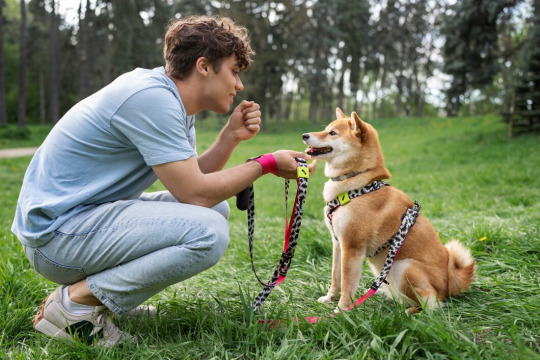
Training your dog is one of the most important aspects of pet ownership, but is it worth enrolling in professional dog training classes? Many pet parents struggle with this decision, wondering if these classes truly make a difference or if they can handle training on their own. In this blog, we’ll explore the benefits of dog training classes, potential downsides, and whether they’re the right choice for you and your furry friend.
🐶 Why Consider Dog Training Classes?
Dog training classes offer structured learning environments designed to help dogs develop good manners and obedience. Whether you have a new puppy, a rescue dog, or a stubborn older pup, these classes provide guidance from professional trainers who understand canine behavior.
Here are some key reasons why dog training classes might be worth it:
✅ Professional Guidance
Certified dog trainers have experience in handling different breeds and temperaments. They can identify behavioral issues early and provide effective solutions.
✅ Socialization Opportunities
Group classes expose your dog to other dogs and people, helping them become well-behaved in social settings. This is especially beneficial for puppies who need early socialization.
✅ Structured Learning
A well-organized training class follows a step-by-step approach to teaching commands, making it easier for both you and your dog to follow along.
✅ Correcting Behavioral Issues
Jumping, barking, leash pulling, or aggression—training classes address these issues with expert techniques tailored to your dog's needs.
✅ Strengthening the Bond
Training isn't just about discipline; it’s also about communication. Attending classes helps you and your dog build a strong relationship based on trust and understanding.
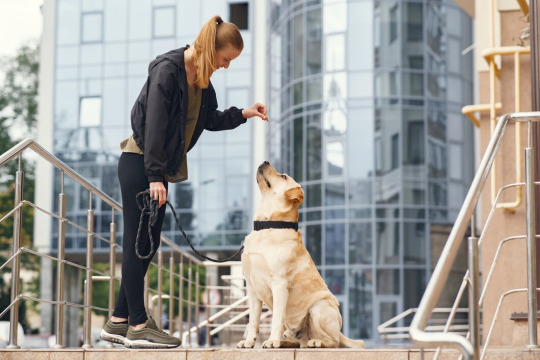
🏠 Can You Train Your Dog at Home Instead?
Yes, you can train your dog at home! Many pet owners successfully teach their dogs basic commands like sit, stay, and come using online tutorials, books, and patience. However, without professional guidance, you might face challenges such as:
❌ Inconsistency in training techniques ❌ Difficulty correcting unwanted behaviors ❌ Limited socialization opportunities for your dog
If you have the time, dedication, and knowledge, at-home training can be effective. But if you're struggling, professional classes might be the best investment.
🏫 Types of Dog Training Classes
Not all dog training classes are the same. Here are some common types to choose from:
🔹 Basic Obedience Classes – Focus on essential commands like sit, stay, heel, and come. 🔹 Puppy Training Classes – Teach young pups socialization and basic commands while addressing potty training and biting issues. 🔹 Behavioral Training – Helps correct bad habits such as excessive barking, leash pulling, or jumping on guests. 🔹 Advanced Training & Agility – Great for dogs who have mastered basic commands and need more challenges. 🔹 Service & Therapy Dog Training – For dogs trained to assist with disabilities or provide emotional support.
💰 How Much Do Dog Training Classes Cost?
The cost of dog training classes varies based on location, trainer experience, and the type of training. On average:
Group Classes: $30 – $100 per session
Private Training: $50 – $150 per session
Board-and-Train Programs: $500 – $2,000+ for intensive training
While it may seem pricey, investing in proper training can prevent costly damages (chewed furniture, destroyed shoes) and behavioral problems in the long run.
🎯 Are Dog Training Classes Right for You?
If you're unsure whether to enroll your dog in training classes, ask yourself:
✔️ Is my dog showing behavioral issues I can't control? ✔️ Do I struggle to get my dog to obey commands? ✔️ Would I feel more confident with expert guidance? ✔️ Does my dog need socialization with other pets?
If you answered yes to any of these, dog training classes are likely a good investment.
🏆 Final Verdict: Are They Worth It?
Yes! While at-home training is possible, professional dog training classes provide structured lessons, socialization opportunities, and expert advice that can make training faster and more effective. They help your dog become a well-mannered companion and strengthen your bond along the way.
🐾 Ready to Train Your Dog?
If you’re thinking about signing up for a class, research trainers in your area, read reviews, and find a program that fits your dog's needs. A well-trained dog is a happy dog!
0 notes